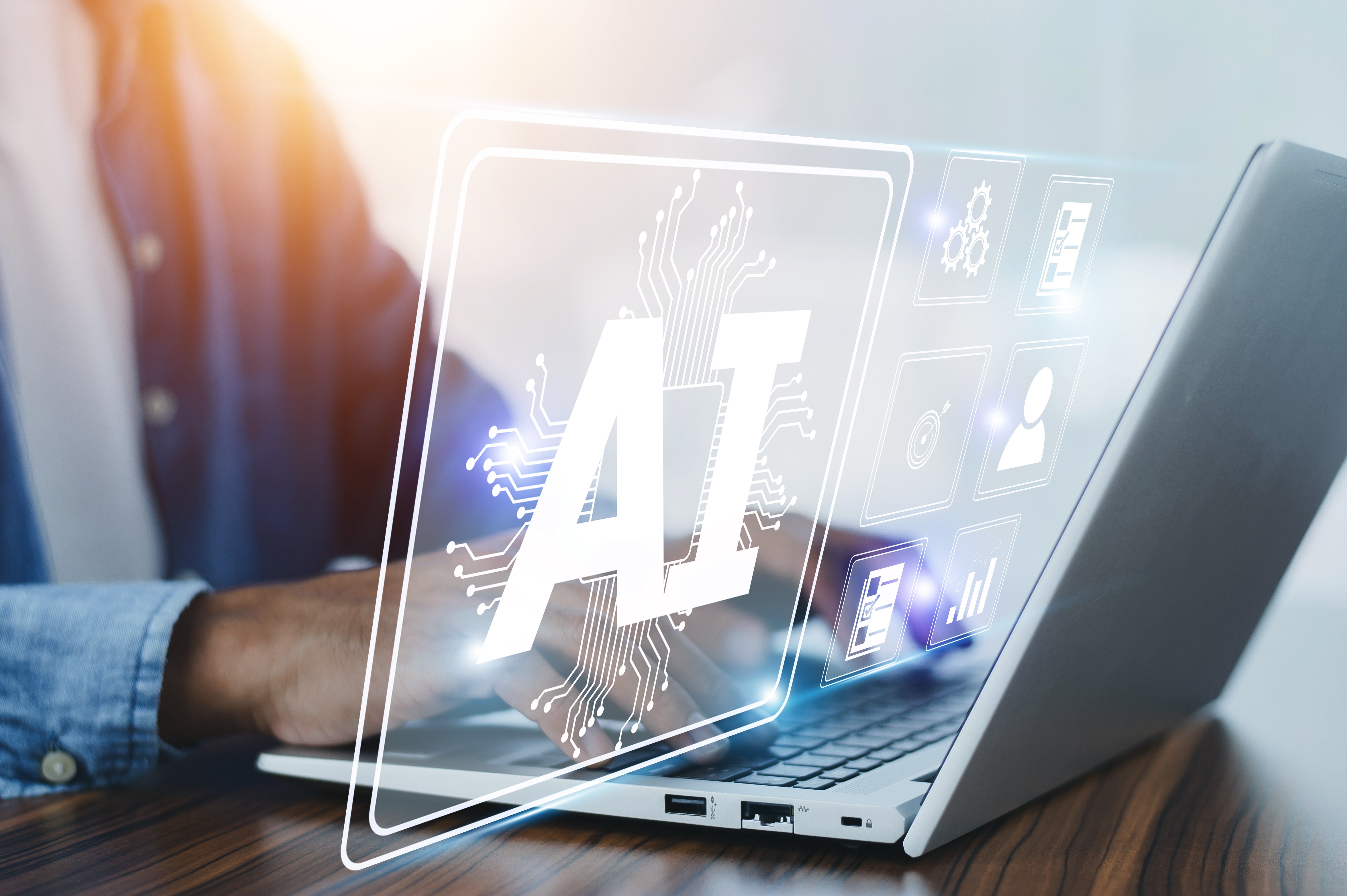The Role of Artificial Intelligence in Health Information Management

As AI continues to revolutionize healthcare (as well as every industry it touches), healthcare organizations are seeing great gains in operational efficiency, accuracy, security, predictive capabilities, informed decision-making, and ultimately improved patient outcomes. This blog explores how AI specifically helps advance the realm of health information management (HIM), and reviews some of the tools that leverage this rapidly progressing technology. Those with their HIMSS certification will especially benefit from deploying these innovations.
AI Takes Health Information Management Further
Artificial intelligence technologies, including machine learning algorithms and natural language processing (NLP) systems, are reshaping how healthcare data is collected, analyzed, and utilized. Here are some important ways AI is shaping and enhancing HIM:
Automation Integrations
AI is especially known for its ability to streamline and automate routine tasks, saving organizations time and energy while helping to keep them compliant. Since AI-powered systems can efficiently process large volumes of patient data, including electronic health records (EHRs), medical imaging, and genomic information, they can extract valuable insights in real time. When integrated with DMS (Document Management Software), which helps keep records and forms organized and accessible to all offices, the technology not only reduces the administrative burden on healthcare professionals but also ensures data accuracy and consistency, mitigating the dangerous risks that arise from manual errors.
Related: Streamlining Workflows for Your Behavioral Healthcare System.
Administrative Assistance
AI-driven HIM solutions are also transforming administrative processes within healthcare organizations. AI-powered revenue cycle management (RCM) systems streamline billing and coding processes, reduce claim denials, and optimize revenue capture. Similarly, AI-driven supply chain management tools enhance inventory control, procurement efficiency, and supply chain resilience, thereby optimizing resource utilization and reducing operational costs.
Strengthened Security
Additionally, AI technologies help heighten healthcare data security and privacy throughout their systems. As health records become increasingly digitized and the industry remains the largest target in the growing threat of cyberattacks, AI-powered cybersecurity solutions play a crucial role in safeguarding sensitive patient health information (PHI). These systems can detect anomalies, identify potential security breaches, and implement adaptive security measures, ensuring compliance with regulatory standards such as HIPAA (Health Insurance Portability and Accountability Act). Document Management Software bolsters these capabilities with other important security safeguards including remote secure authentication, two-factor authentication, end-to-end encryption, access controls, and more.
Clinical Decision-Making Support
AI-powered systems serve as invaluable tools and soundboards for healthcare providers. As they analyze vast amounts of medical literature, clinical guidelines, and patient data, the technology can generate evidence-based recommendations right at the point of care. Whether it's assisting in diagnosis, suggesting treatment options, or flagging medication interactions, AI enhances clinical decision-making with relevant, timely information.
Proactive Healthcare Management
In the predictive analytics field, AI plays a vital part in proactive healthcare management. By analyzing historical patient data and identifying patterns, AI models can predict disease progression, recommend personalized treatment plans, and even forecast potential health risks. It’s a true game-changer. Not only does this foresight help improve patient outcomes with early intervention, but it also optimizes resource allocation within healthcare facilities, freeing healthcare professionals to focus on enhanced patient care.
Weighing the Benefits and Challenges
When integrating AI into your healthcare organization’s HIM, it’s important to consider these benefits along with their challenges. Issues like data privacy concerns, ethical considerations surrounding AI algorithms, interoperability issues among disparate systems, and the need for ongoing training and education for healthcare professionals to effectively leverage AI technologies should not be overlooked. While technology continues to grow and advance, staying on top of these challenges becomes paramount to overcoming them. Regardless, AI is here to stay. Right now, the benefits are outweighing any issues.
Related: How Healthcare Information Management Reporting Tools Help Improve Performance.
Elevate HIM With AI
The role of artificial intelligence in health information management is indeed transformative, offering unprecedented opportunities to improve healthcare delivery, enhance patient outcomes, and drive operational efficiency. Knowing how to maintain HIPAA compliance is just the beginning. AI can help automate, provide administrative assistance, strengthen security, provide clinical decision-making support, and drive proactive healthcare management.
By leveraging the power of AI-driven solutions, healthcare organizations can bring their patient care to the next level, and help pave the way for a data-driven healthcare future that benefits us all. Want to know more about how you can integrate AI into your HIM functions? Reach out today!
Related Articles

Everything You Need to Know About E-Signatures and HIPAA Compliance
Oct 1, 2024
Ensuring the privacy and security of patient information is paramount in healthcare. This is where the Health Insurance Portability and Accountability...

How to Maintain High Levels of HIPAA Compliance in Your Healthcare System
Sep 24, 2024
Integrating document management software into your healthcare organization has many benefits - increased productivity for providers and staff, higher ...



